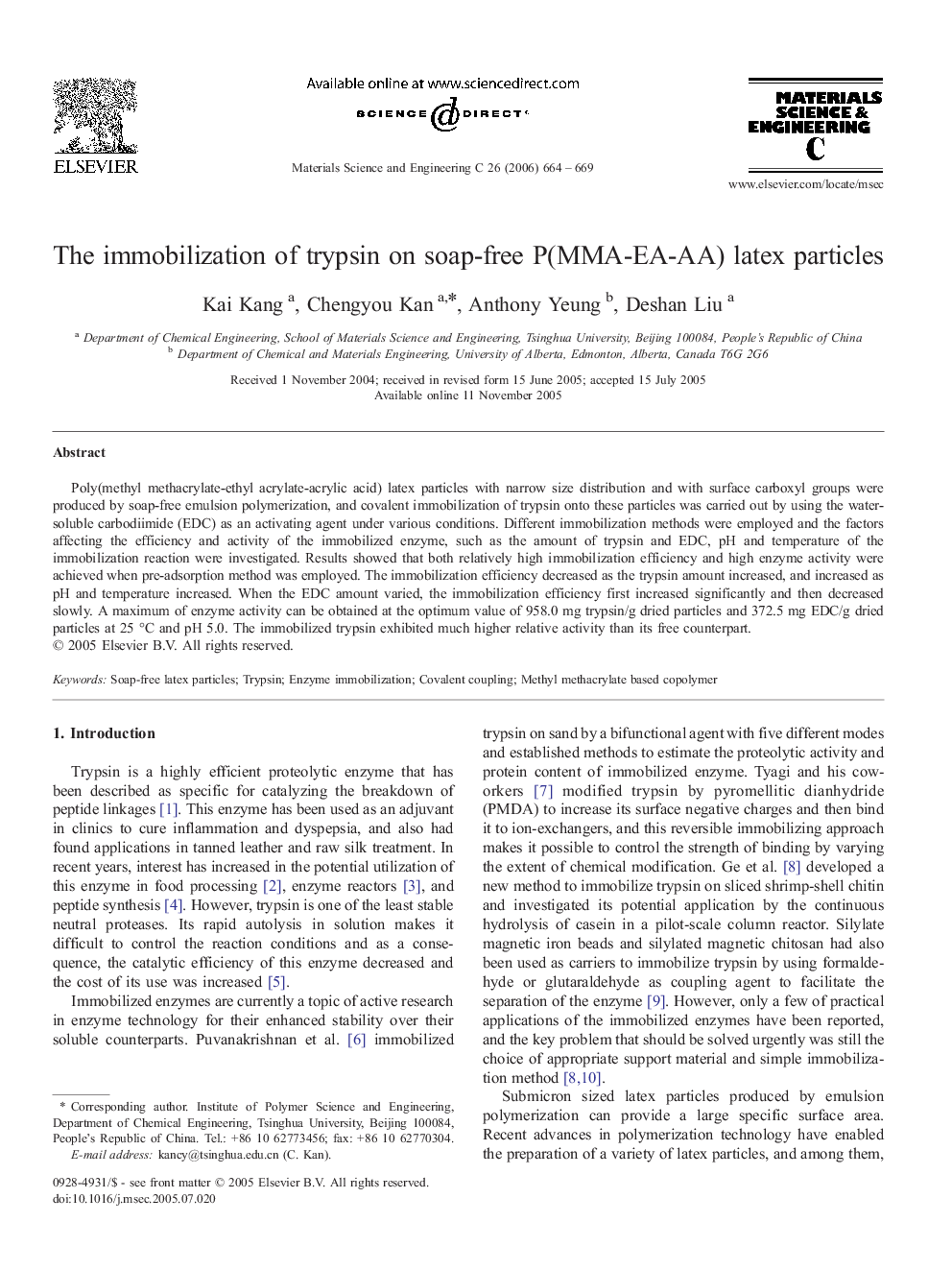| Article ID | Journal | Published Year | Pages | File Type |
|---|---|---|---|---|
| 1431027 | Materials Science and Engineering: C | 2006 | 6 Pages |
Poly(methyl methacrylate-ethyl acrylate-acrylic acid) latex particles with narrow size distribution and with surface carboxyl groups were produced by soap-free emulsion polymerization, and covalent immobilization of trypsin onto these particles was carried out by using the water-soluble carbodiimide (EDC) as an activating agent under various conditions. Different immobilization methods were employed and the factors affecting the efficiency and activity of the immobilized enzyme, such as the amount of trypsin and EDC, pH and temperature of the immobilization reaction were investigated. Results showed that both relatively high immobilization efficiency and high enzyme activity were achieved when pre-adsorption method was employed. The immobilization efficiency decreased as the trypsin amount increased, and increased as pH and temperature increased. When the EDC amount varied, the immobilization efficiency first increased significantly and then decreased slowly. A maximum of enzyme activity can be obtained at the optimum value of 958.0 mg trypsin/g dried particles and 372.5 mg EDC/g dried particles at 25 °C and pH 5.0. The immobilized trypsin exhibited much higher relative activity than its free counterpart.
